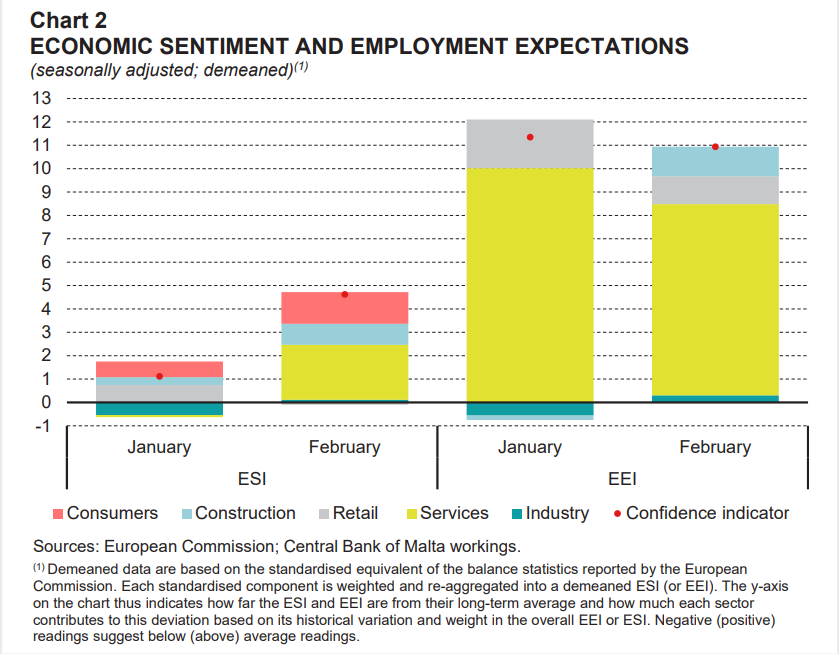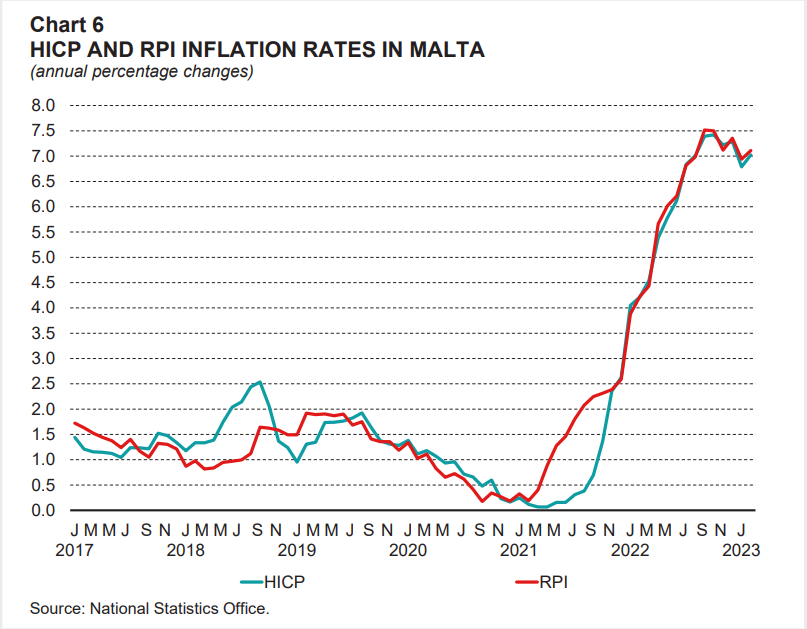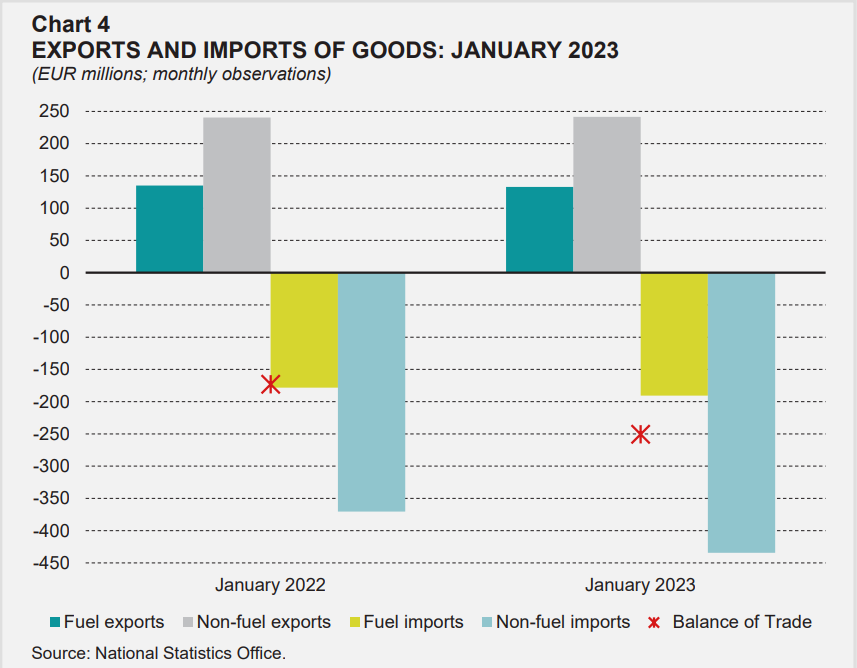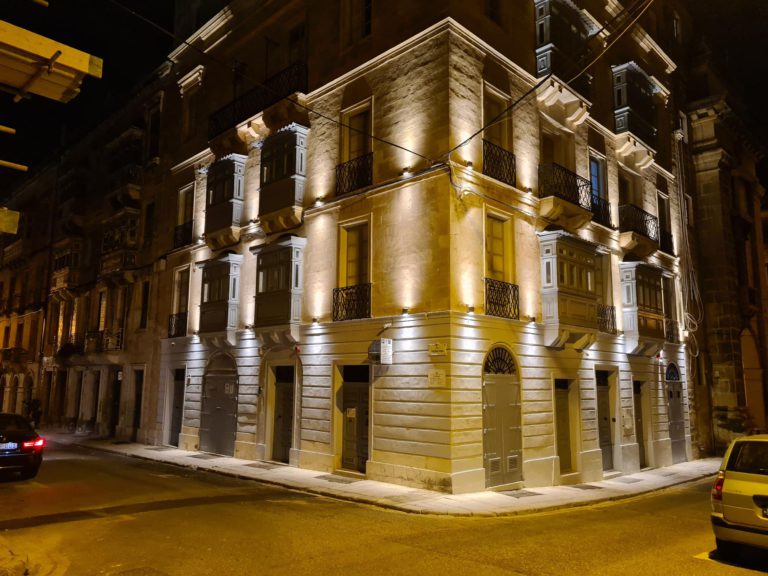The Central Bank of Malta’s (CBM) Business Conditions Index indicates that in February, annual growth in business activity remained slightly above its long-term average, estimated since January 2000.
The information was made available through the CBM’s ‘March Economic Update’.
The European Commission’s confidence surveys show that economic sentiment in Malta edged up further in February when compared with a month earlier, and stood above its long-term average, which is estimated since November 2002.

When compared with the previous month, the improvement was largely driven by the construction and services sectors. By contrast, sentiment turned negative in the retail sector.
Additional survey information shows that compared to January 2023, price expectations stood around their year-ago level among consumers, as well as in industry and services.
The CBM found that the annual rate of inflation based on the Harmonised Index of Consumer Prices (HICP) stood at seven per cent in February, up from 6.8 per cent in the previous month. Inflation based on the Retail Price Index (RPI) also increased, standing at 7.1 per cent in February, from 6.9 per cent in January.

However, price expectations they stood firmly above their year-ago level in the construction sector, while standing significantly lower in the retail sector.
The European Commission’s Uncertainty Indicator for Malta decreased in February, with uncertainty dropping mostly in industry. When looking at trade, customs data show that the merchandise trade deficit stood at €250.5 million in January, from a deficit of €173.0 million a year earlier. This is driven by an increase in imports of €76.4 million and a small decline in exports of €1.1 million.

The CBM noted that higher imports were mainly on account of a substantial increase in registrations of aircraft and imports of vehicles. An increase in imports of electrical machinery and fuel also contributed but to a lesser extent. These offset lower imports of organic chemicals, plastics and pharmaceutical products
Meanwhile growth in industrial production and volume of retail trade remained strong in annual terms, but was slower when compared to December 2022.
Unemployment stood at three per cent in January, marginally higher than the rate of 2.9 per cent registered in the previous month, and on par from what was registered in January 2022.
Commercial building and residential permits decreased in January relative to their year-ago levels but exceeded those issued in December. In February, the number of promise-of-sale agreements rose on a year-on-year basis while the number of final deeds of sale fell.
Annual growth in Maltese residents’ deposits expanded at a slower rate of 3.9 per cent in January. Meanwhile, annual growth in credit to Maltese residents also moderated to 7.3 per cent.
Self-employed, employees and companies contribute €2.1 billion in 2023
Parliamentary data reveals five-year growth trends in fiscal contributions
MFSA concludes review of Crypto-Asset Service Providers following MiCA implementation
The Authority provided clear expectations and guidance to address certain concerns.
Malta Development Bank to launch schemes supporting sustainable development and creative sector
In 2024, the MDB launched the SME Guarantee Scheme and the Guaranteed Co-Lending Scheme






